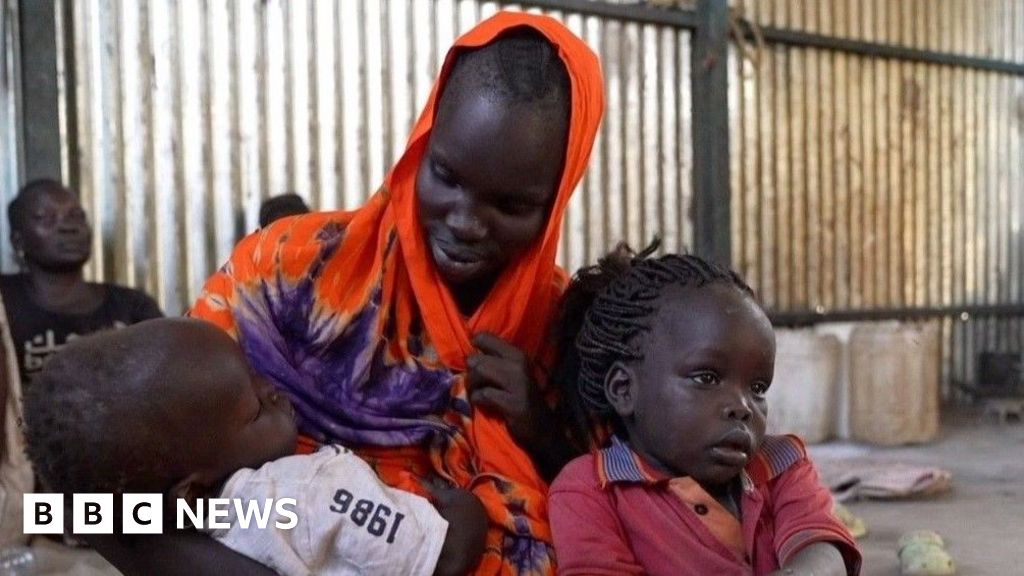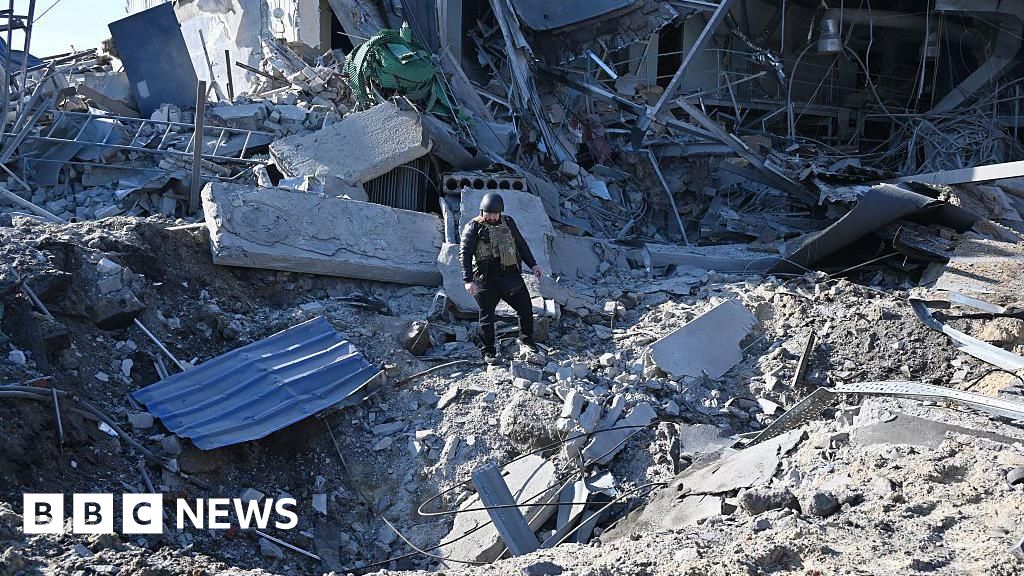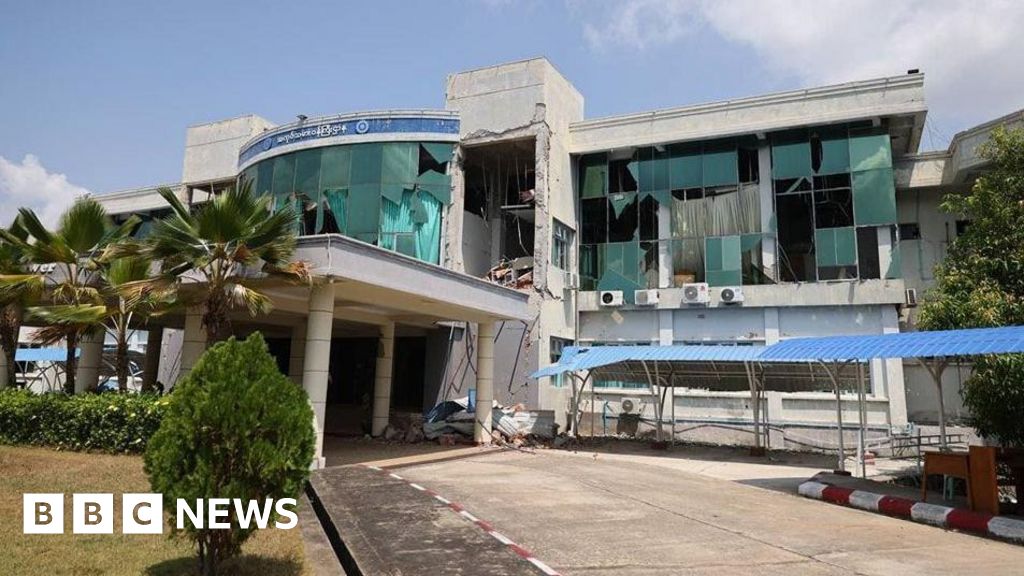ARTICLE AD BOX
By Maher Mezahi
Algeria
The once verdant mountains of the Algerian region of Tizi Ouzou, peppered with olive groves and coniferous trees, were ravaged by more than 100 forest fires over the past fortnight.
The heat could be felt from dozens of kilometres away.
At a petrol service station in the province of Bouira, a man working the pump laboured with the suffocating atmosphere.
"[The heat] is coming from over the mountain. I've never seen fires like this," he said, squinting into the distance.
Forest fires are not a new phenomenon for Algeria, and the north-eastern region of Tizi Ouzou in particular.
On the contrary, they are regular occurrences that first responders tussle with almost every year.
Yet, in the midst of a heatwave, no rain, and unrelenting gusts of wind, this year's blazes caused extensive damage.
Tens of thousands of hectares around the villages of Larbaâ Nath Irathen, Beni Douala and Aït Mesbah were completely engulfed in flames, leaving charred silhouettes of the evergreen trees that used to line the hills.
image sourceReuters
image captionVolunteers had to use whatever they could find to try and extinguish the firesEarly reports conclude that this year's fires inflicted more damage to Algeria's forests than all the fires from 2008 to 2020 combined.
At least 90 people died fighting the flames, including 33 military personnel who received honourable funeral processions - figures far higher than ever seen before.
Despite fighting fires year after year, and boasting one of Africa's biggest military budgets, Algeria does not have amphibious firefighting airplanes.
Instead, a handful of Mi-26 helicopters equipped with 1,000-litre buckets and overloaded fire engines tried their best to snuff out the infernos.
As a result, the government had to resort to asking the European Union to help out, and, on 12 August, French President Emmanuel Macron quickly sent out two planes.
image sourceEPA
image captionHelicopters used huge buckets of water to help put out the flamesThe villagers of Beni Douala joined the fight with shovels, branches or whatever other supplies were readily available to them.
"Maybe its passport has expired," joked Fethi Fellah, a young volunteer, when asked if he had spotted a firefighting plane.
"Besides the firefighters, no-one has come to help us out," he said, while directing a procession of cars down from the mountain and into the city of Tizi Ouzou, where families were gathered at community centres in makeshift shelters.
One such establishment was the banquet hall Le Printemps, hosting dozens of people who had fled their homes.
image sourceAFP
image captionMany people found their homes consumed by the infernosResilience, desperation and indignation were etched on their faces as they understood that they were left to their own devices.
"The authorities have not helped us evacuate, we had to rely on volunteers who went from village to village," said Ines, a volunteer who did not want to share her family name.
"They are partially responsible for the elevated death toll. Every year we have forest fires and the proper mechanisms are still not in place," she said.
Both Prime Minister Aymen Benabderrahmane and President Abdelmadjid Tebboune said that the origin of the forest fires were criminal, while failing to produce concrete evidence for the claims.
They blamed separatist groups fighting for self-determination in the Kabyle region around Tizi Ouzou, and also said it would "review" diplomatic relations with Morocco, which it accuses of backing the groups.
However, such accusations ignore the fact that countries around the Mediterranean have also struggled with forest fires in recent weeks, including Turkey, Greece, Cyprus, Italy and France.
Climate change in the region is likely to be causing an increase in the conditions in which wildfires occur.
Unfortunately, global warming is not yet a significant part of Algerian public discourse.
More than 90% of Algeria's exports are in the hydrocarbon sector, so fossil fuels are integral to the country's strategic interests.
During the 2019 presidential election debate, for instance, not once was an environmental agenda discussed by any of the five candidates.
Yet the human and environmental losses from natural disasters are becoming just too costly to ignore.
image sourceReuters
image captionAt least 90 people died trying to put out the firesForest fires are not the only symptoms of climate change in Algeria.
The Sahara desert, which makes up about 80% of the country's area, is getting bigger.
It has expanded by 10% over the past century, according to the Journal of Climate, published by the American meteorological society.
Increased desertification disrupts pastoral grazing routes and forces farmers to draw deeper into underground aquifers for water resources.
For the already marginalised populations on the edges of the desert, global warming makes daily life in the summertime extremely difficult.
You might also be interested in:
Schoolchildren in the Adrar province, for example, have some of the country's lowest literacy rates, partly because the school buildings are not adapted to the region's extreme temperatures.
In the capital city of Algiers, water stress has limited large parts of the city to just a few hours of running water per day.
President Tebboune has announced that three emergency desalination plants are to be constructed to alleviate the problem.
However, until climate change is taken seriously, and a specific environmental policy is implemented, reactive solutions will only provide short-term relief.

 3 years ago
106
3 years ago
106








 English (US) ·
English (US) ·